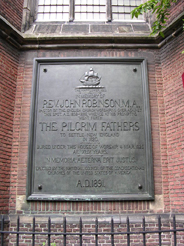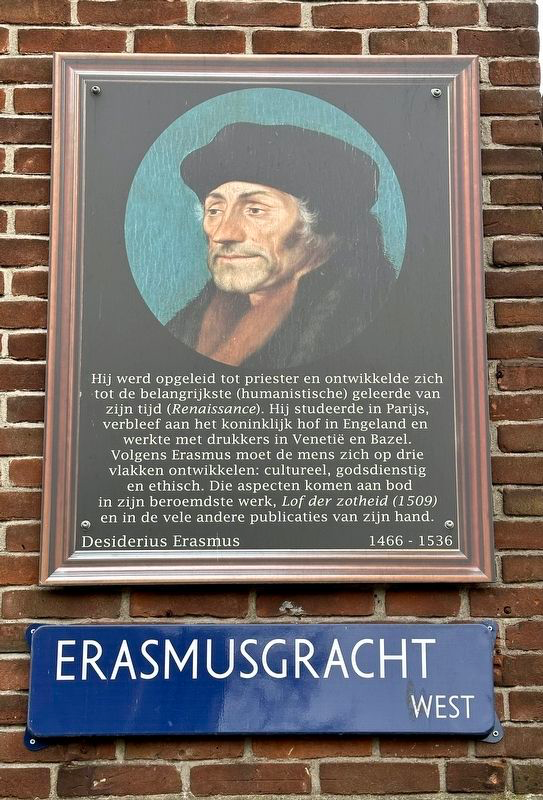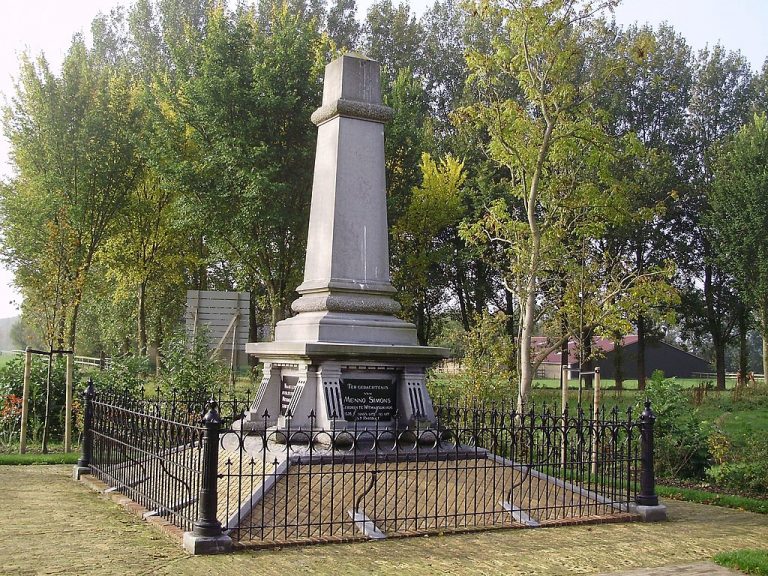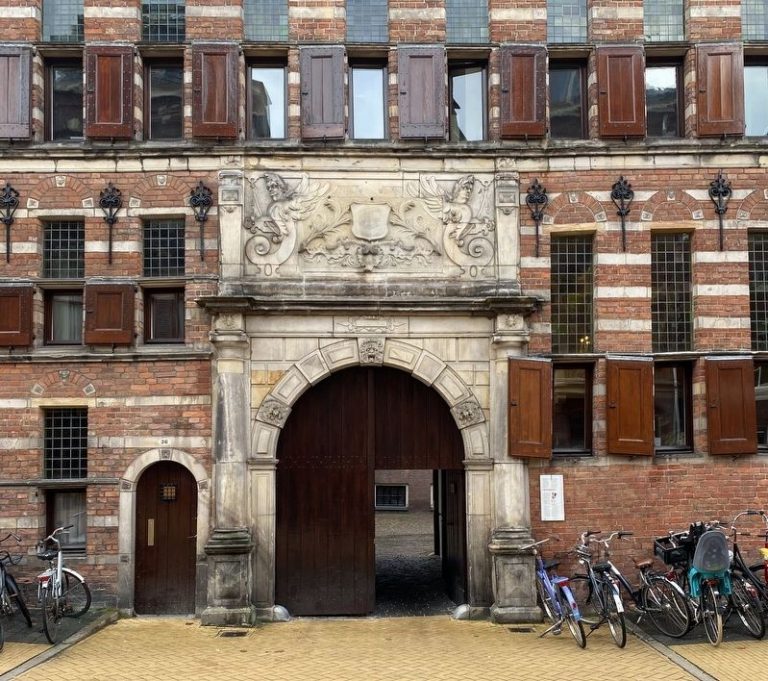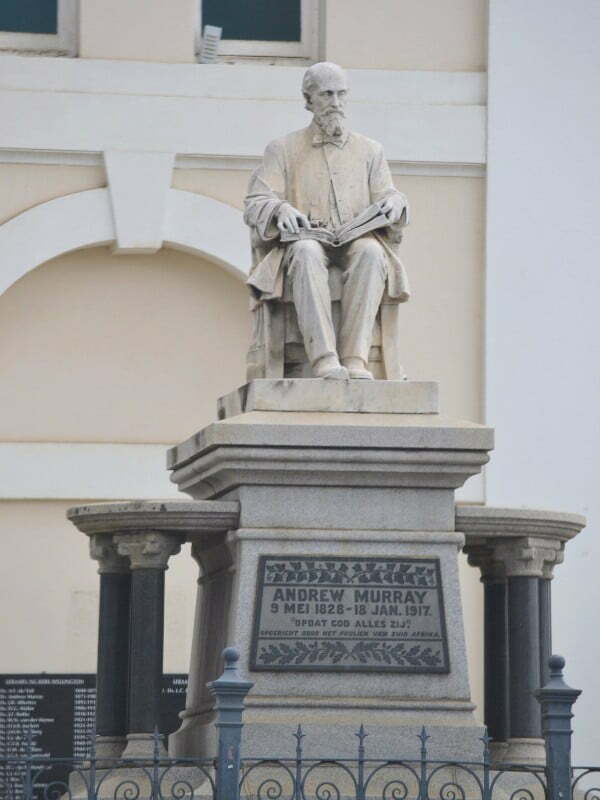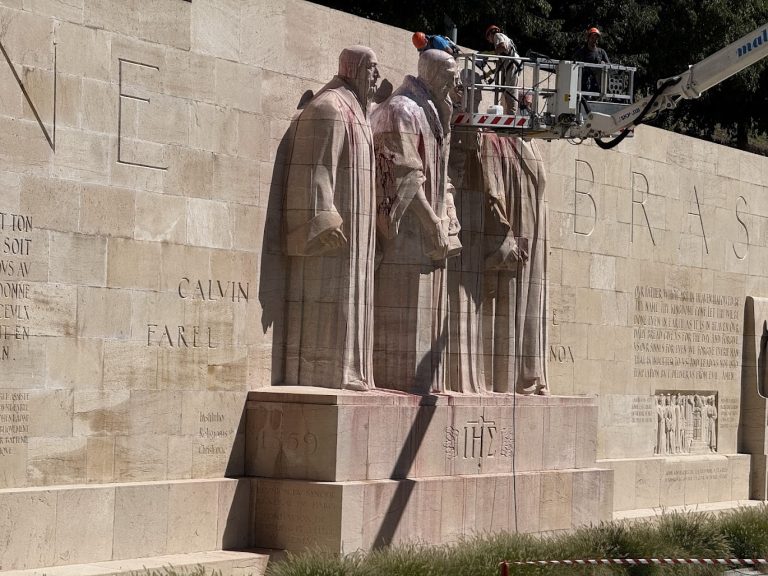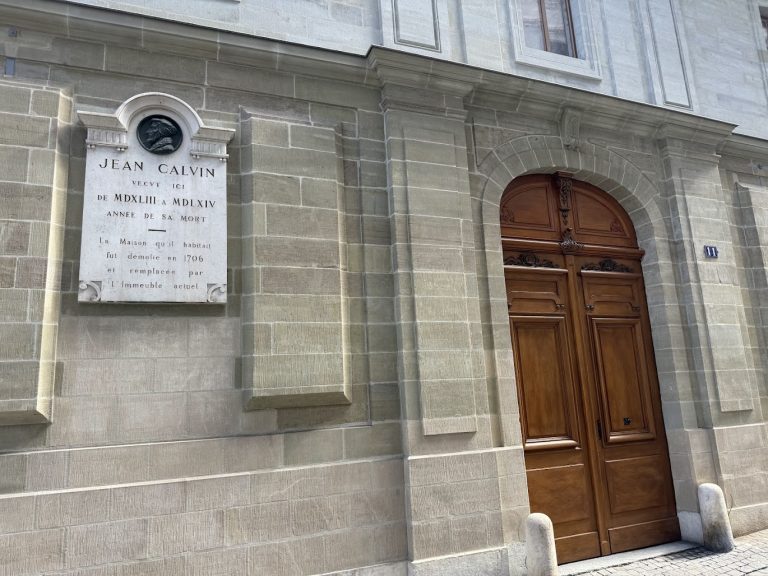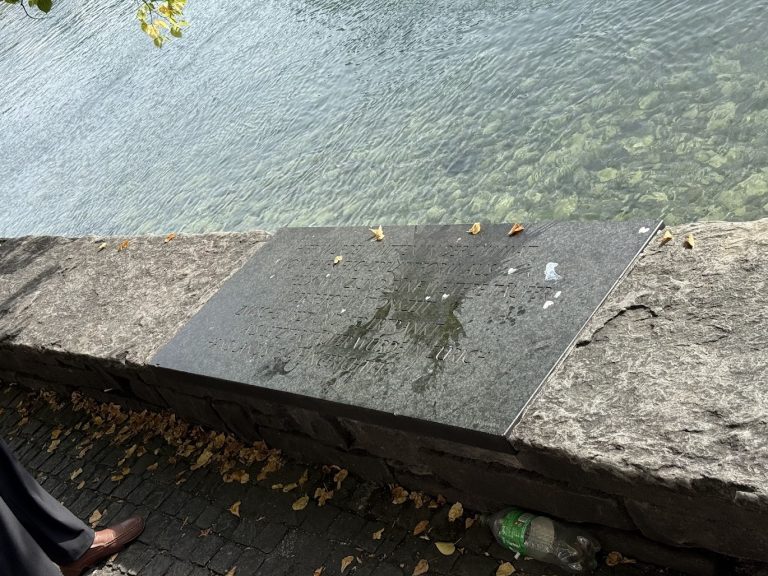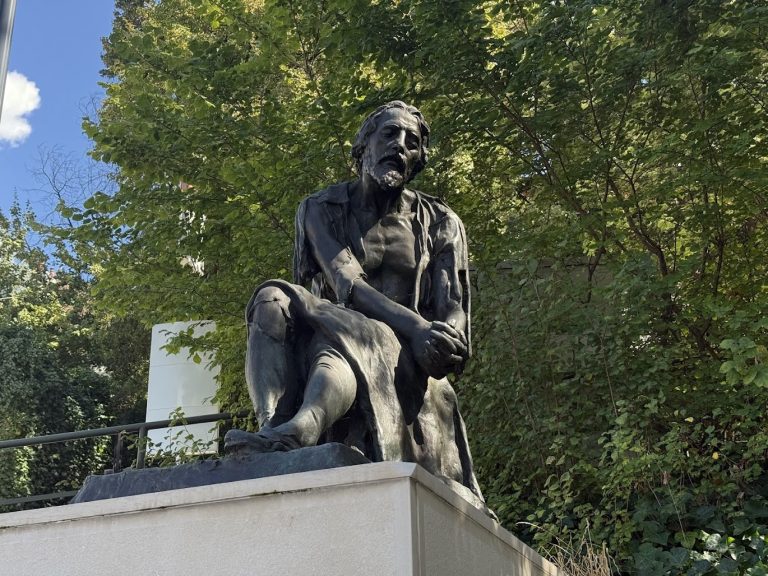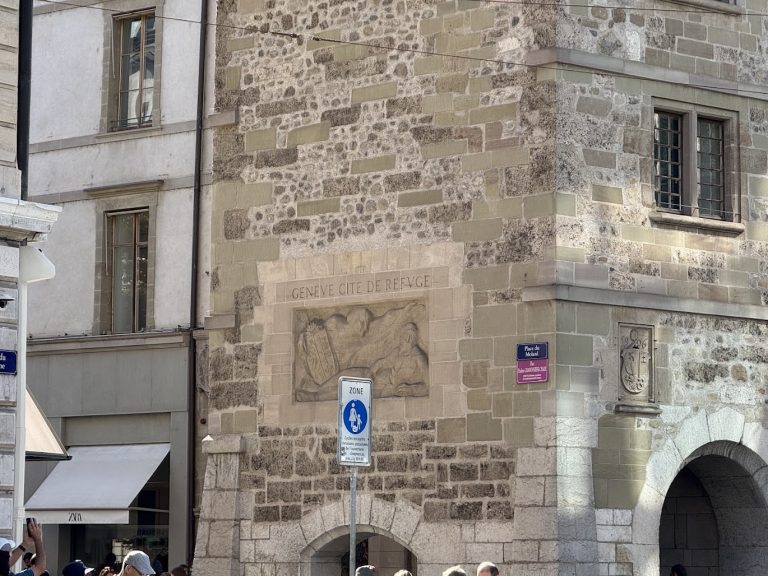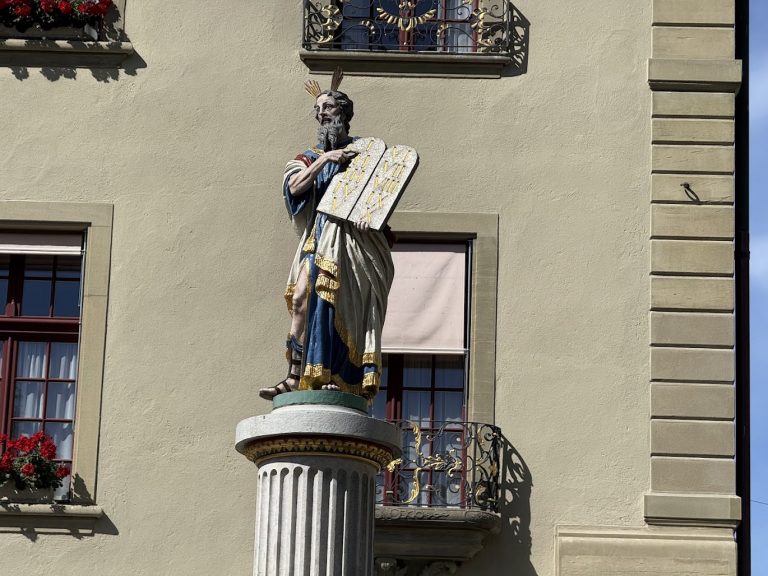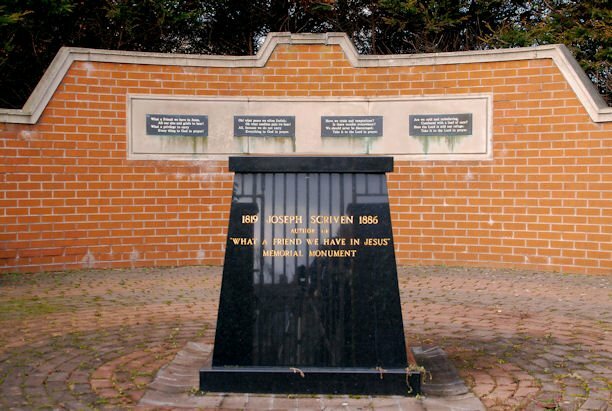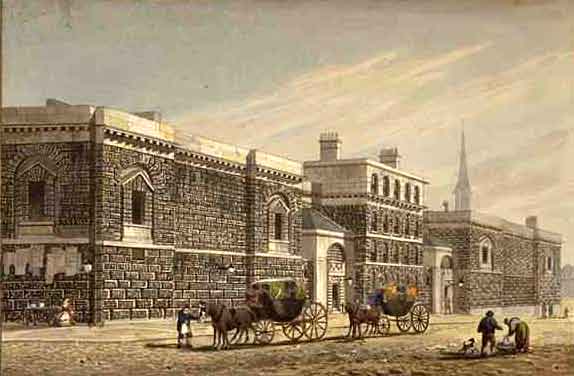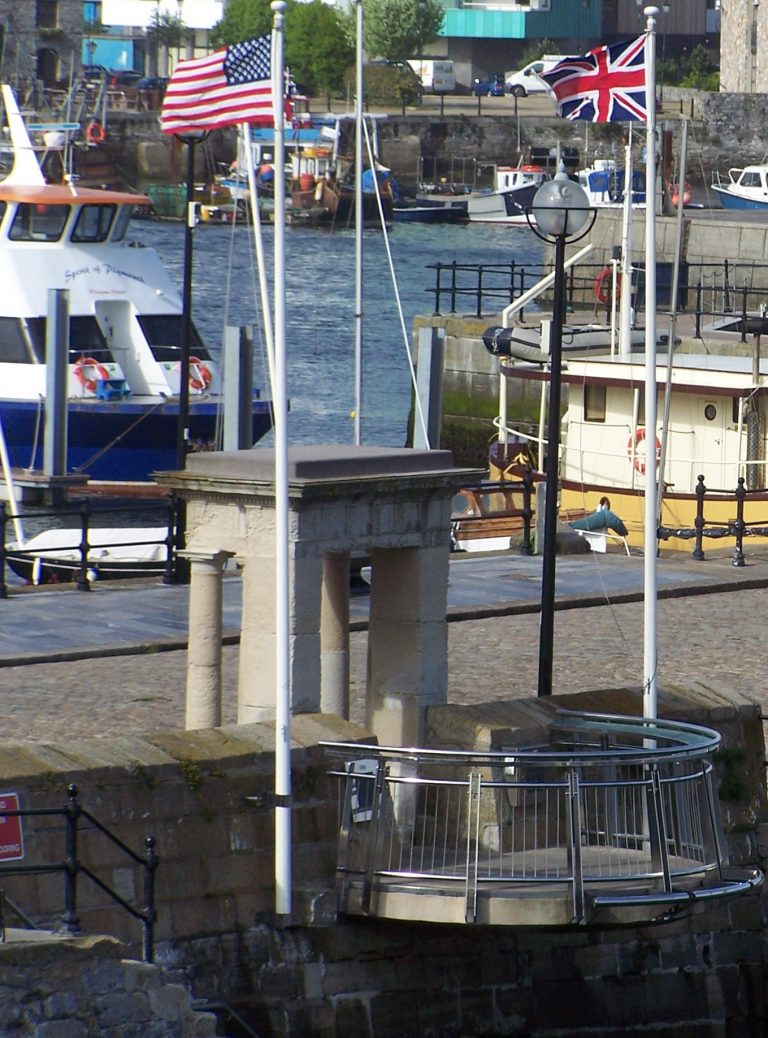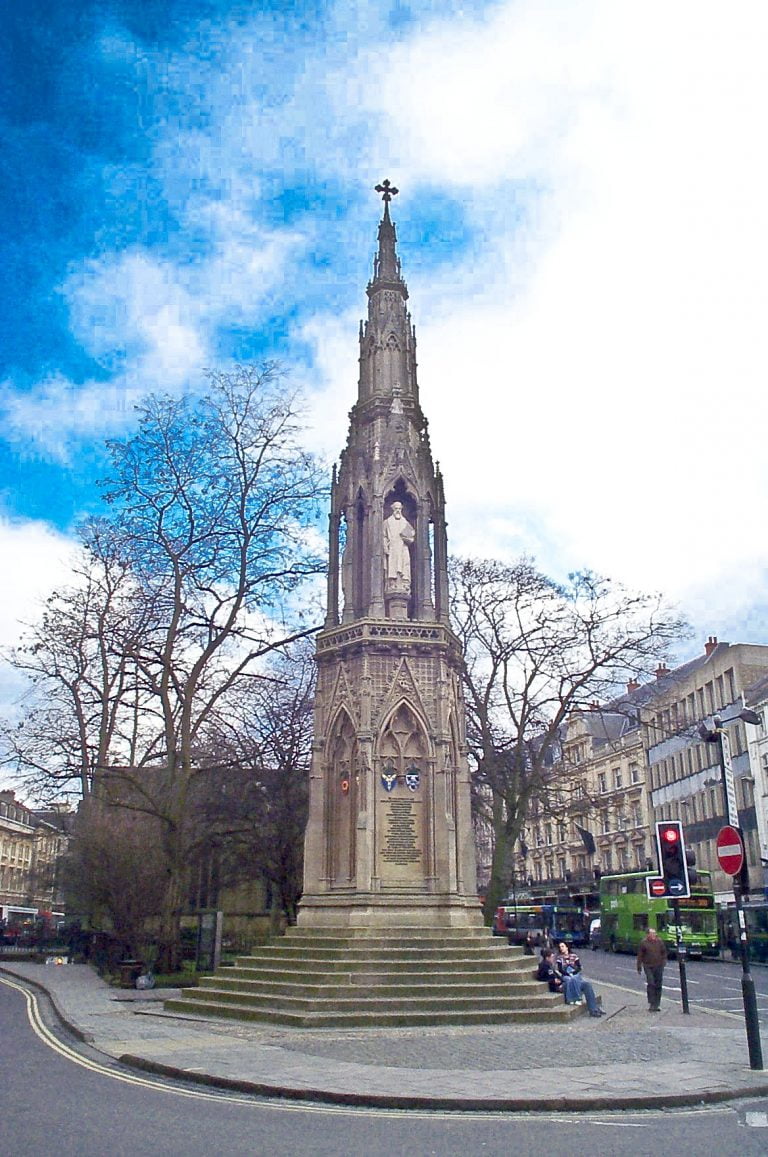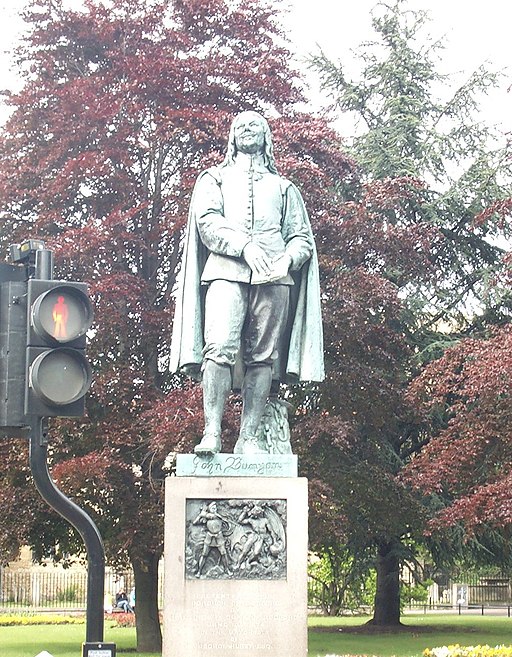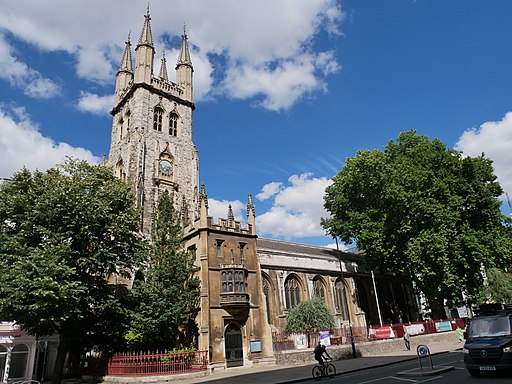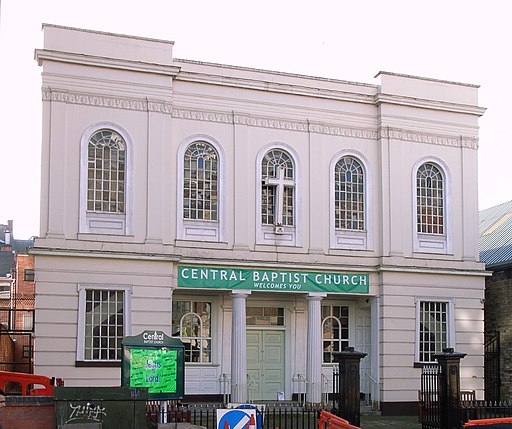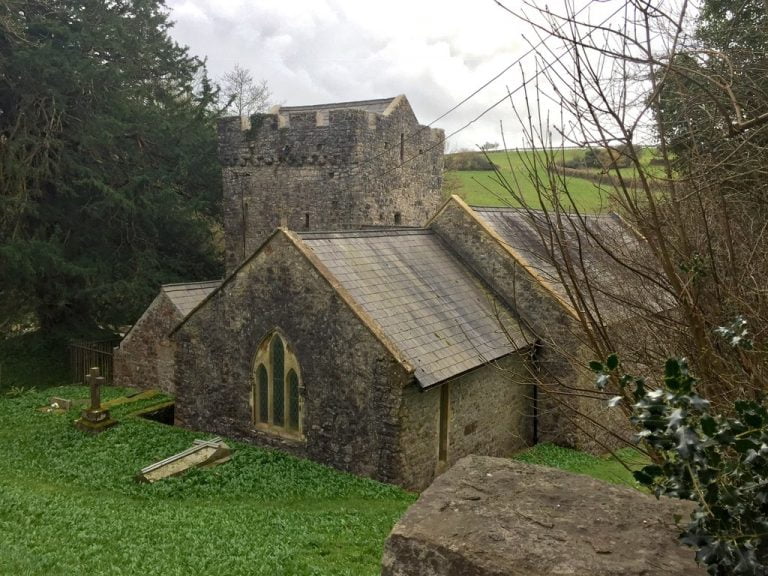Favorite
In Memory of Rev. John Robinson, M.A. Pastor of the English church worshiping over against this spot. A.D. 1609-1625, whence at his prompting went forth the Pilgrim Fathers to settle New England in 1620.Buried under this house of worship, 4 Mar. 1625AET. XLIX Years. In Memoria Aeterna Erit Justus. Image Credit: Tombaine at English Wikipedia, Public domain, via Wikimedia Commons Read more...
Favorite
English Translation from HMDB: He was trained as a priest and developed into the most important (humanist) scholar of his time (Renaissance). He studied in Paris, stayed at the royal court in England and worked with printers in Venice and Basel. According to Erasmus, man must develop in three areas: cultural, religious and ethical. These aspects are discussed in his Read more...
Favorite
GAMEO: The Menno Monument (coordinates: 53° 5′ 56″ N, 5° 28′ 54″ E [53.098889, 5.481667]), in Witmarsum, Dutch province of Friesland, was erected on the site where the meetinghouse of the Witmarsum Mennonites once stood. Tradition says that the house of Herman and Gerrit Jansz stood here, where Menno first preached after leaving the Roman Catholic Church in 1536, and often stayed, and where he was probably married…. Photo Read more...
Favorite
Stadsmonumenten.nl The oldest part of the former court building is from the early 15th century. Wigbold Wigboldus became in 1477, the owner of the meters-high stone house. Until 1585, the building was owned by the prominent squire family Van Ewsum. The last Van Ewsum, Christoffer, was kind to the persecuted Mennonites and provided their wanted leader, Menno Simons, shelter. Photographed Read more...
Favorite
Watch Doug Whitley in character as Andrew Murray: From Website: This church is a landmark in the centre of town and boasts a fine statue of the Reverend Andrew Murray, a Scot, and one of the pioneer theologians of the Dutch Reformed Church in South Africa. The Dutch Reformed Mother Church’s congregation moved away from the Paarl congregation in Read more...
Favorite
This monument ties together the story of the Reformation – Post Tenebras, Lux. After Darkness, Light. The Proto-Reformers leading up to Martin Luther: Peter Waldo (c. 1140-c. 1205) John Wycliffe (c. 1328-1384) Jan Hus (c. 1369-1415) Martin Luther (1483-1546) The Zurich Reformation Ulrich Zwingli (1484-1531) Marie Dentière (c. 1495-1561) At the center, the Geneva Reformation. (At this time, the monument Read more...
Favorite
From Wikipedia: During his ministry in Geneva, Calvin preached over two thousand sermons. Initially he preached twice on Sunday and three times during the week. This proved to be too heavy a burden and late in 1542 the council allowed him to preach only once on Sunday. In October 1549, he was again required to preach twice on Sundays and, Read more...
Favorite
From Wikipedia: On 7 March 1526, the Zürich council had passed an edict that made adult re-baptism punishable by drowning. On 5 January 1527, Felix Manz became the first casualty of the edict, and the first Swiss Anabaptist to be martyred at the hands of magisterial Protestants. While Manz stated that he wished “to bring together those who were willing to accept Christ, obey the Word, and follow Read more...
Favorite
Text: Duteous and grateful followers of Calvin our great Reformer, yet condemning an error which was that of his age, and strongly attached to liberty of conscience according to the true principles of his Reformation and gospel, we have erected this expiatory monument. Oct. 27, 1903 What to say about Servetus? From John Calvin’s Geneva: A Walking Guide “In 1903, Read more...
Favorite
From Museum of Protestants: The first wave took place between 1540 and 1590 and mainly concerned Geneva. During the second wave, before and after the Revocation of the Edict of Nantes in 1685, refugees came mostly from the Dauphin, Cévennes and Languedoc regions; the major route of exodus was the passage from Lake Geneva to the Rhine River. The roads Read more...
Favorite
Beautiful statue of Moses holding the Ten Commandments above the Water Fountain. From Wikipedia – regarding the Horns of Moses: Depictions of a horned Moses stem from the description of Moses’ face as “cornuta” (“horned”) in the Latin Vulgate translation of the passage found at Exodus chapter 34, specifically verses 29, 30 and 35, in which Moses returns to the people after receiving the Read more...
Favorite
1819 – Joseph Scriven – 1886 Author of “What a Friend We Have in Jesus” Memorial Monument Featured Image Credit: Albert Bridge / Joseph Scriven memorial, Banbridge Read more...
Favorite
In the back of Amen Court, in the shadow of St. Paul’s Cathedral, stands the only surviving wall of Newgate Prison, where many Baptists suffered and died. copyrighted and used by permission from David Beale, Baptist History in England and America: Personalities, Positions, and Practices Famous Prisoners according to Wikipedia John Bradford, religious reformer – burned at the stake at Read more...
Favorite
Visit the Mayflower Memorial at the Barbican, from where the Pilgrims, in 1620, departed for the New World. Visit the Mayflower Museum just down the street. copyrighted and used by permission from David Beale, Baptist History in England and America: Personalities, Positions, and Practices Plaque: On the 6th of September, 1620, in the Mayorality of Thomas Fownes, after being “kindly entertained Read more...
Favorite
See the Martyrs Memorial, a stone monument, near Balliol College, at the intersection of St. Giles, Magdalen, and Beaumont Streets. The Memorial commemorates Oxford’s Reformer-martyrs, Thomas Cranmer, Nicholas Ridley, and Hugh Latimer. The earlest Baptists were products of the Reformation. copyrighted and used by permission from David Beale, Baptist History in England and America: Personalities, Positions, and Practices 5 Minutes in Read more...
Favorite
A bronze statue of Bunyan stands at the north end of High Street. copyrighted and used by permission from David Beale, Baptist History in England and America: Personalities, Positions, and Practices Featured Image Credit: Simon Speed, CC BY-SA 3.0 <http://creativecommons.org/licenses/by-sa/3.0/>, via Wikimedia Commons Read more...
Favorite
Inside the Church of St. Sepulchre without Newgate, at Holborn Viaduct, a hand bell known as the Execution Bell, resides in a glass case, situated near the entrance of a blocked-up tunnel that once connected the church with Newgate Prison. At midnight prior to execution days, the church’s bellman would walk through the tunnel and into the prison. Standing outside Read more...
Favorite
In 1789, William Carey and his family moved into a cottage across the street from Leicester’s Harvey Lane Baptist Church, which he shepherded to the time of their departure to India in 1793. The Harvey Lane building no longer exists. When Harvey Lane Baptist outgrew its building, in 1845, the congregation moved to Belvoir Street and changed its name to Read more...
Favorite
On October 5, 1783, William Carey walked five miles from Piddington to Northampton, for John Ryland Jr. (1753-1825) to immerse him in the River Nene at 6:00 AM. he was baptized on the spot where the modern railway station is now located. The construction of the station necessitated the rerouting of the River Nene. Carey’s baptism took place where the Read more...
Favorite
John Myles organized the earliest Baptist church in Wales, in 1651. During Oliver Cromwell’s rule, Myles’s church occupied the thirteenth-century Church of St. Illtyd, located on a small country lane, at Ilston, near the west end of the Swansea airfield. at the Restoration of the British monarchy, in 1660, officials of Charles II ousted John Myles and his congregation from St. Read more...
